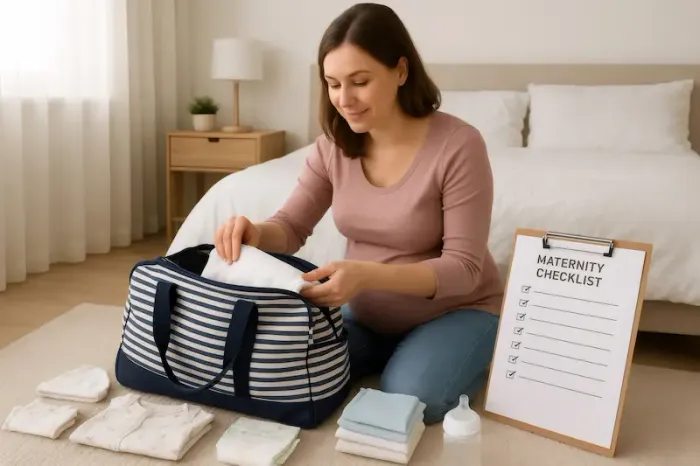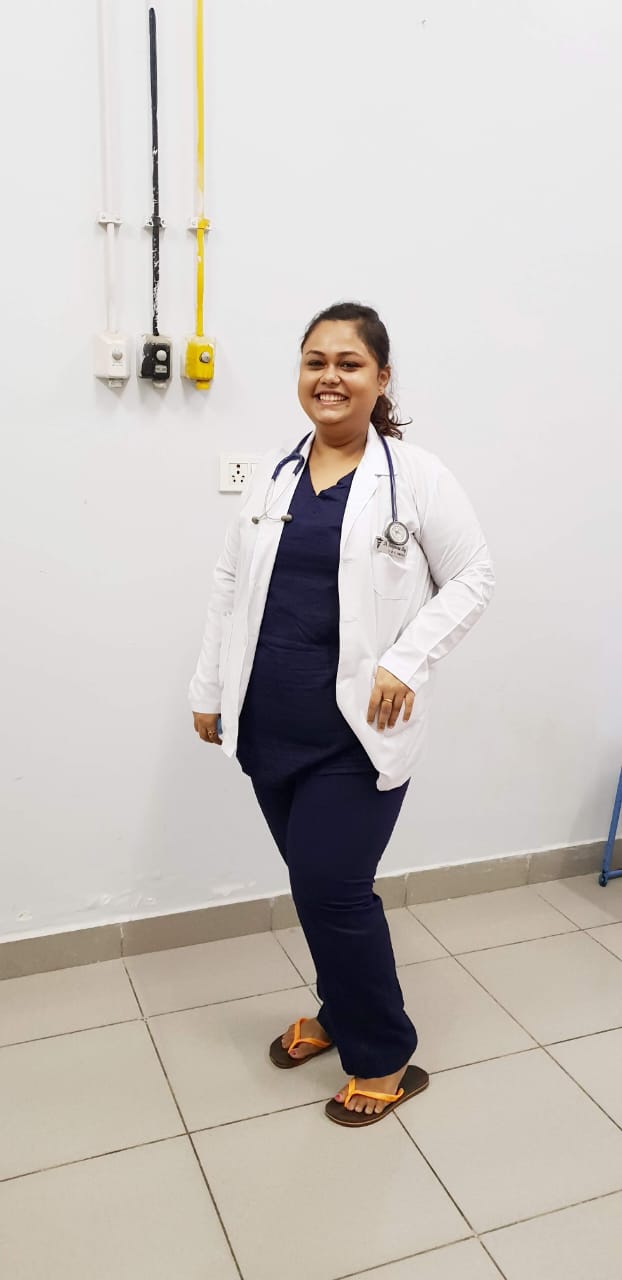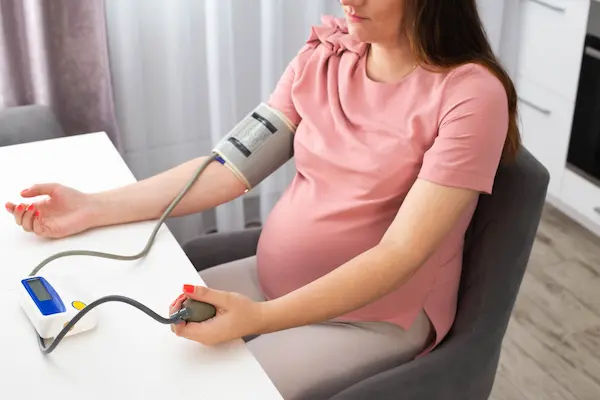Hospital Bag Checklist Essentials for Labour and Delivery
Get prepared with our hospital bag checklist covering all the essentials for labour, delivery, and postpartum comfort.


Introduction
The final weeks of pregnancy are a whirlwind of excitement and anticipation. Amidst the baby kicks and nursery preparations, one crucial task stands out: packing your hospital bag. This isn't just any overnight bag; it's your personal comfort kit for one of life's most monumental experiences. Being well-prepared can significantly reduce anxiety and allow you to focus on what truly matters: welcoming your new baby. This comprehensive guide will walk you through exactly what to pack for yourself, your baby, and your birth partner. We’ve curated this pregnancy hospital bag checklist based on recommendations from obstetricians and seasoned parents, ensuring you have everything you need for a smooth labour and delivery and a comfortable postpartum stay. Let’s get you packed and ready to go!
When Should You Pack Your Hospital Bag?
You should pack your hospital bag in advance so you are ready for labour and delivery without any last-minute stress.
The Ideal Timeline: 36 Weeks and Ready to Go
While your baby might have their own schedule, it's wise to have your bag packed and ready by the time you hit 36 weeks pregnant. This is because babies born after 37 weeks are considered full-term, and some may decide to make an early entrance. Having your bag ready by 36 weeks ensures you’re prepared for any surprise contractions or signs of labour, eliminating last-minute scrambling and stress. Keep the bag in an easily accessible spot, like by your front door or in your car trunk, and make sure your partner or support person knows where it is.
Essential Documents: The Most Important Bag of All
Before you worry about socks or snacks, gather all necessary paperwork. This is the one thing the hospital absolutely requires. Keep these documents in a separate, easy-to-access folder in your bag.
• Photo ID (Driver’s licence, passport)
• Health Insurance card and pre-registration forms (if provided by the hospital)
• Hospital paperwork and birth plan (if you have one)
• Any medical records your doctor has given you to bring
• Emergency contact list
Consult an Obstetrician and Gynaecologist for the best advice
Comfort and Care: Packing for Mom's Labour and Delivery
This section is all about your comfort during the intensity of labour.
Clothing and Comfort Items
• Robe: A lightweight, dark-coloured robe is perfect for walking the halls, skin-to-skin contact, and easy nursing access.
• Non-Slip Socks or Slippers: Hospital floors are cold. Grippy socks will keep you warm and safe when walking around.
• Comfortable Nightgown or PJs: Choose something loose, soft, and opening in the front if you plan to breastfeed. Don't pack your favorite, as it might get messy.
• Lip Balm: Hospital air is dry, and lips can get chapped quickly during labour.
• Massage Tools & Heat Packs: A tennis ball or handheld massager can help with back labour. Disposable heat packs can provide comforting relief.
Toiletries and Personal Care
• Travel-sized shampoo, conditioner, body wash, and lotion.
• Toothbrush, toothpaste, and floss.
• Hair ties, headband, or clip to keep hair off your face.
• Deodorant, face wipes, and basic makeup if it makes you feel more human.
• Glasses and/or contact lenses with a case and solution.
Nutrition and Hydration
• Reusable Water Bottle: One with a straw is easier to drink from while lying down.
• High-Energy Snacks: Think granola bars, nuts, dried fruit, or crackers. Check if your hospital allows eating during labour (some do for low-risk births).
• Hard Candy or Lollipops: Can help with dry mouth.
Postpartum Recovery: Essentials for After the Birth
The focus shifts to recovery once your baby arrives.
Must-Have Postpartum Recovery Items
• Nursing Bras: A few comfortable, wireless nursing bras.
• Nipple Cream: Lanolin or other hydrogel pads can be a lifesaver for sore nipples.
• High-Waisted Underwear: Go for mesh-free, full-coverage cotton underwear that won't irritate a C-section incision. The hospital provides mesh underwear, but many moms prefer their own.
• Maternity Pads: While the hospital provides these, many women prefer the comfort and absorbency of their own brand of heavy-duty overnight pads.
• Peri Bottle: The hospital will give you one, but a portable bidet or peri bottle with an angled spout (like a FridaMom one) can be more effective for soothing and cleaning.
Going-Home Outfit for Mom
Pack loose, comfortable clothing you wore during your second trimester. Think yoga pants, a soft nursing top, or a loose-fitting dress. Your belly won't disappear immediately, so avoid pre-pregnancy jeans.
Welcome to the World: Packing for Your Newborn
Your newborn needs very little in the hospital, but a few items can make their first days more comfortable.
Newborn Clothing Options
• Onesies (side-snap kimono styles are best for avoiding the umbilical cord stump)
• Footed sleepers (with zippers for easier diaper changes)
• Mittens (to prevent face scratching)
• Soft hats (the hospital provides these, but you might want your own)
Feeding and Diapering Basics
The hospital provides formula (if needed), diapers, and wipes. However, you may want to pack:
• Your own preferred brand of diapers or wipes if your baby has sensitive skin.
• Burp cloths and a nursing pillow if you plan to breastfeed.
The Going-Home Outfit
This is the photo-op moment! Choose an outfit appropriate for the weather. A simple footed sleeper, a hat, and a pair of socks are perfect. Don't forget a newborn-sized car seat, which is legally required for discharge. Install it in your car well before your due date.
Don't Forget the Support Crew: Bag for Your Birth Partner
Your partner needs sustenance and comfort too!
• Change of clothes and toiletries.
• Phone and long phone charger/cord.
• Snacks and drinks (and cash for the vending machine).
• Pillow and blanket (hospital ones are often limited).
• Entertainment: book, tablet, or downloaded playlist.
Special Considerations: Packing for a C-Section
If a Cesarean section is planned or probable, add these items:
• High-Waisted Underwear and Loose Pants: You'll want anything that sits well above the incision line. Think pajamas with a drawstring waist.
• Slip-On Shoes: Bending over to tie laces will be impossible.
• Stool Softeners: Pain medications can cause constipation, which is extra uncomfortable post-surgery. Always confirm with your doctor at Apollo24|7 before taking any new medication.
• A Firm Pillow: Holding a pillow against your incision can provide support and reduce pain when coughing, laughing, or moving.
Pro Tips and Final Checks Before You Go
Make sure you have packed smart and covered all essentials with these quick tips and last-minute checks before heading to the hospital.
• Install the Car Seat: Do this weeks in advance. Many local fire departments offer free checks.
• Charge Everything: Phones, cameras, tablets, power banks.
• Pre-Download: Download music, podcasts, or movies onto your devices; hospital Wi-Fi can be spotty.
• Leave Valuables at Home: Wedding rings and expensive jewellery are best left in a safe place.
Conclusion
Packing your hospital bag is a tangible step toward meeting your baby, transforming anticipation into preparation. This ultimate pregnancy hospital bag checklist is designed to cover all bases, ensuring you have the essentials for comfort, care, and a smooth transition into motherhood. Remember, while things like lip balm and cozy socks may seem small, they can make a significant difference in your overall experience. The goal is to feel empowered, prepared, and able to focus entirely on the miracle of birth. Double-check your list, place your bag by the door, and take a deep breath. You’ve got this. For any last-minute questions about what to pack or concerns about your birth plan, don’t hesitate to consult your obstetrician for personalised advice.
Consult an Obstetrician and Gynaecologist for the best advice
Consult an Obstetrician and Gynaecologist for the best advice

Dr. Sheetal Aggarwal
Obstetrician and Gynaecologist
17 Years • MBBS, MS (Obstetrics & Gynaecology)
Gurugram
Dr Sheetal's clinic, Gurugram
Dr. K Anusha
Obstetrician and Gynaecologist
4 Years • MBBS, DGO
Yemmiganur
SRINIVASAA HOSPITAL, Yemmiganur

Dr. Sanjan Das
Obstetrician and Gynaecologist
15 Years • MBBS,MS
Bengaluru
Apollo Clinic, Sarjapur Road, Bengaluru

Dr. Parul Sharma
Obstetrician and Gynaecologist
8 Years • MBBS, MS (Obstetrics & Gynaecology)
New Delhi
THE DOCTORS NESST, New Delhi

Dr. Sreeparna Roy
Obstetrician and Gynaecologist
8 Years • MBBS , MS (OBSTETRICS & GYNAECOLOGY), Fellowship in Infertility, Endoscopy & Ultrasonography), Fellowship in Laparoscopy & Hysteroscopy,DRM
Barasat
Diab-Eat-Ease, Barasat
Consult an Obstetrician and Gynaecologist for the best advice

Dr. Sheetal Aggarwal
Obstetrician and Gynaecologist
17 Years • MBBS, MS (Obstetrics & Gynaecology)
Gurugram
Dr Sheetal's clinic, Gurugram
Dr. K Anusha
Obstetrician and Gynaecologist
4 Years • MBBS, DGO
Yemmiganur
SRINIVASAA HOSPITAL, Yemmiganur

Dr. Sanjan Das
Obstetrician and Gynaecologist
15 Years • MBBS,MS
Bengaluru
Apollo Clinic, Sarjapur Road, Bengaluru

Dr. Parul Sharma
Obstetrician and Gynaecologist
8 Years • MBBS, MS (Obstetrics & Gynaecology)
New Delhi
THE DOCTORS NESST, New Delhi

Dr. Sreeparna Roy
Obstetrician and Gynaecologist
8 Years • MBBS , MS (OBSTETRICS & GYNAECOLOGY), Fellowship in Infertility, Endoscopy & Ultrasonography), Fellowship in Laparoscopy & Hysteroscopy,DRM
Barasat
Diab-Eat-Ease, Barasat
More articles from pregnancy
Frequently Asked Questions
1. How many outfits should I pack for my newborn?
Pack 2-3 simple outfits in newborn and 0-3 month sizes. Babies are messy, and you don't know which size will fit best right away.
2. Should I pack my own maternity pads and underwear?
The hospital will provide these, but many women prefer their own. It’s a good idea to have a pack of your preferred heavy-duty pads and some high-waisted cotton underwear on hand just in case.
3. Are there any items I should NOT pack in my hospital bag?
Yes. Avoid valuable jewelry, large amounts of cash, and any medications not approved by your doctor. Also, leave perfumed lotions or sprays at home, as strong scents can bother the newborn.
4. What is the most commonly forgotten item?
A long phone charger is the number one forgotten item! A 10-foot cord allows you to use your phone while it charges from an outlet that might be across the room.
5. Do I need to pack my own breast pump?
No, the hospital will have a clinical-grade pump available for you to use if needed. Wait to use your personal pump until you’ve met with a lactation consultant who can show you how to fit the flanges properly.




